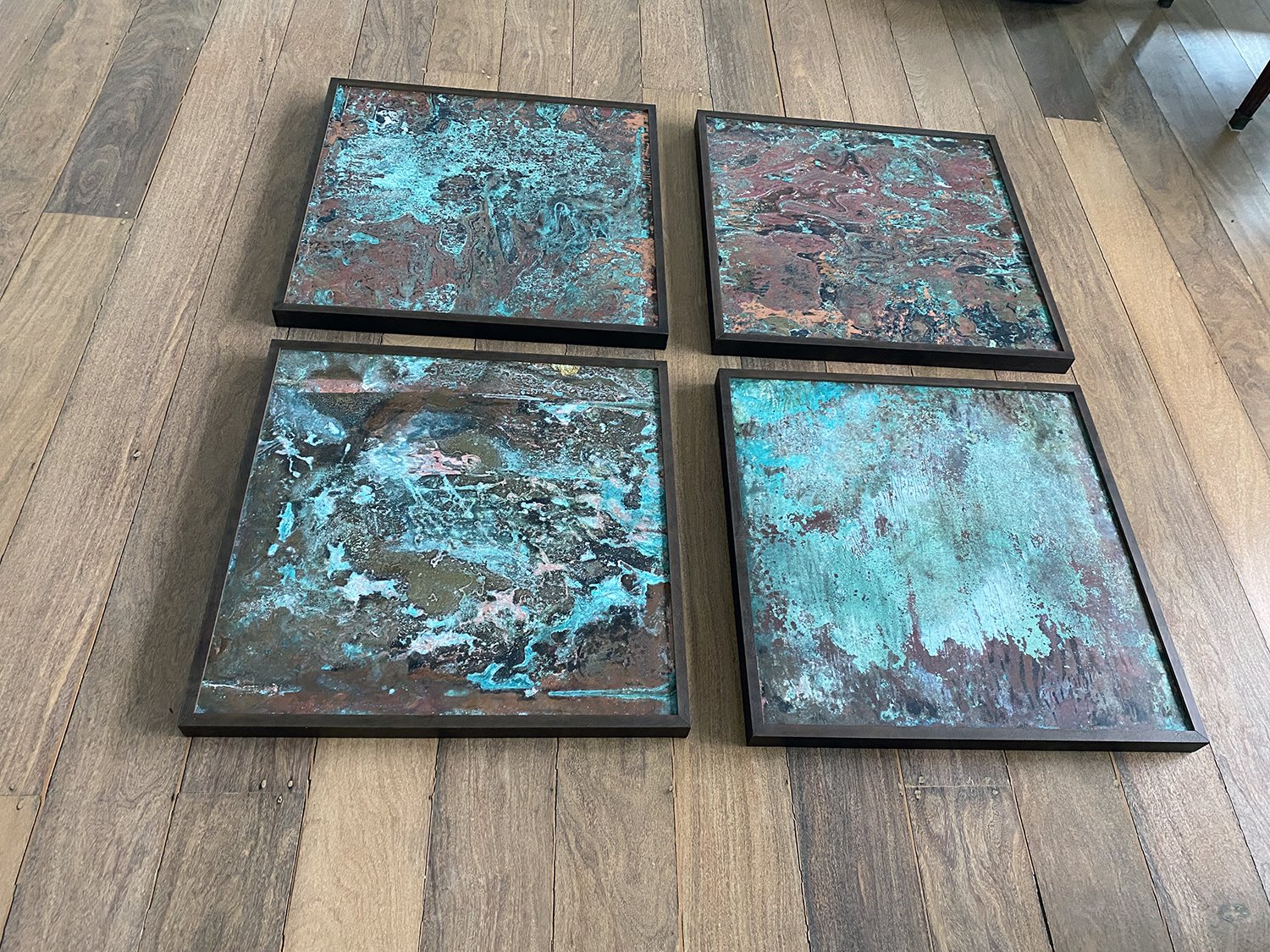




















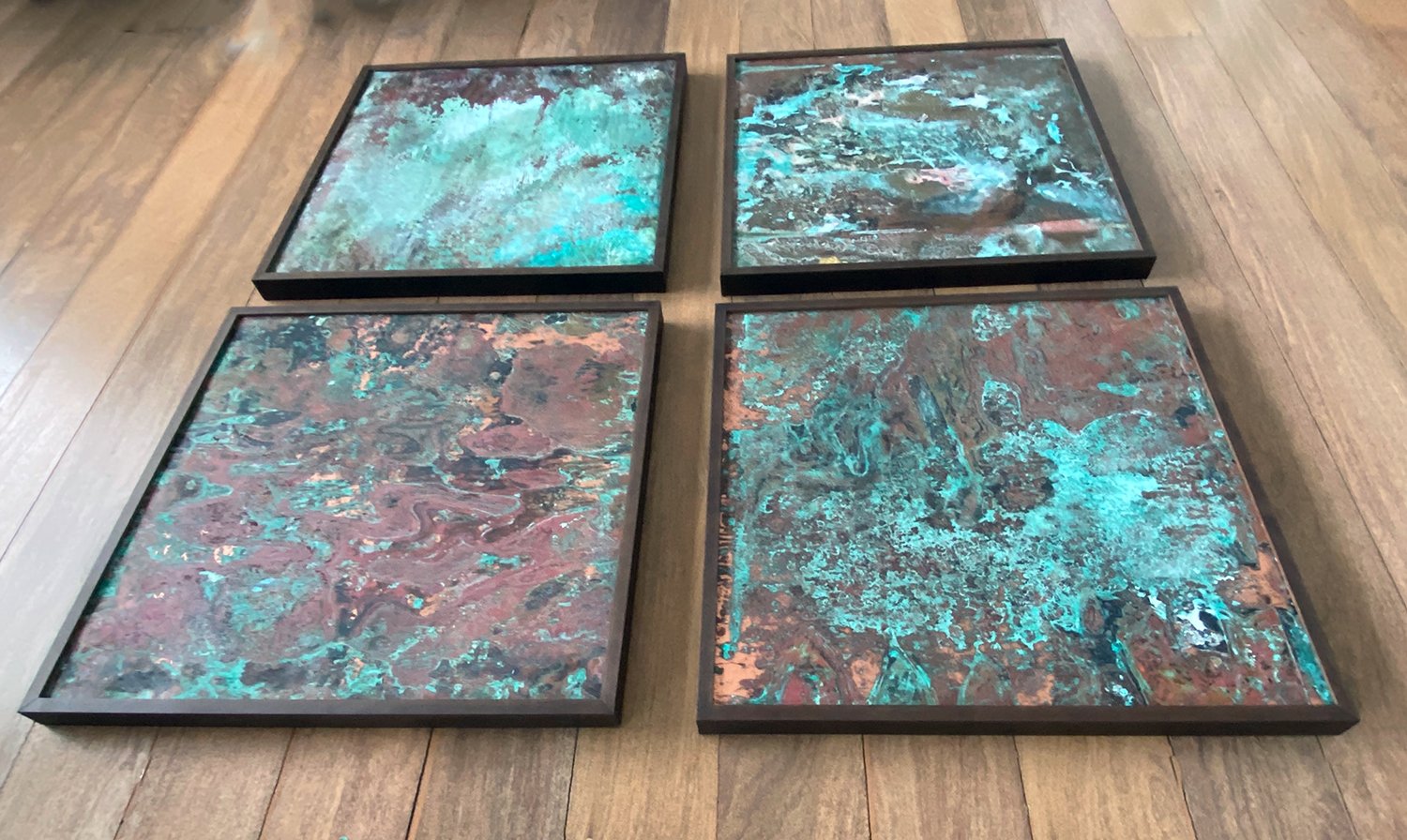
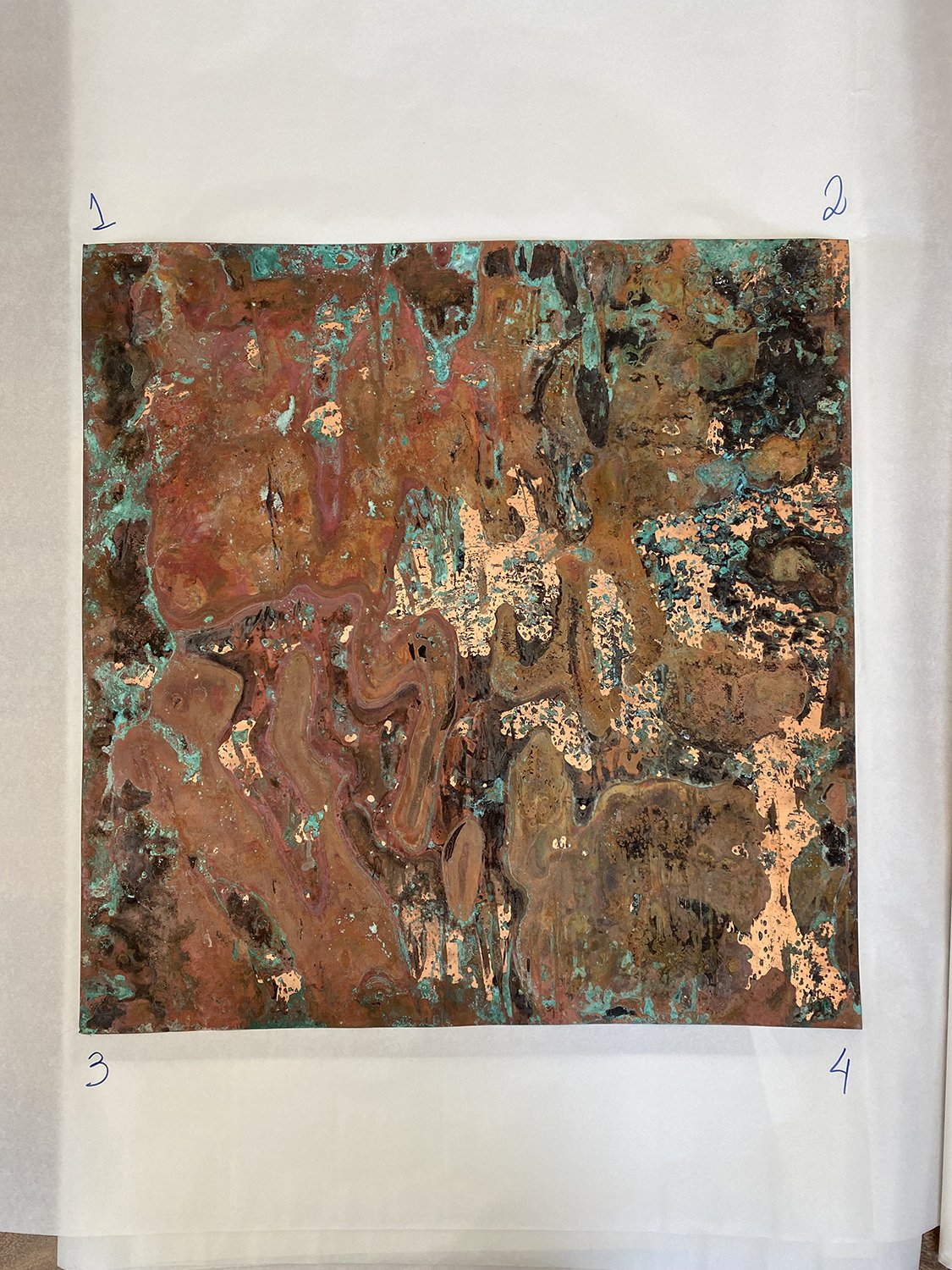
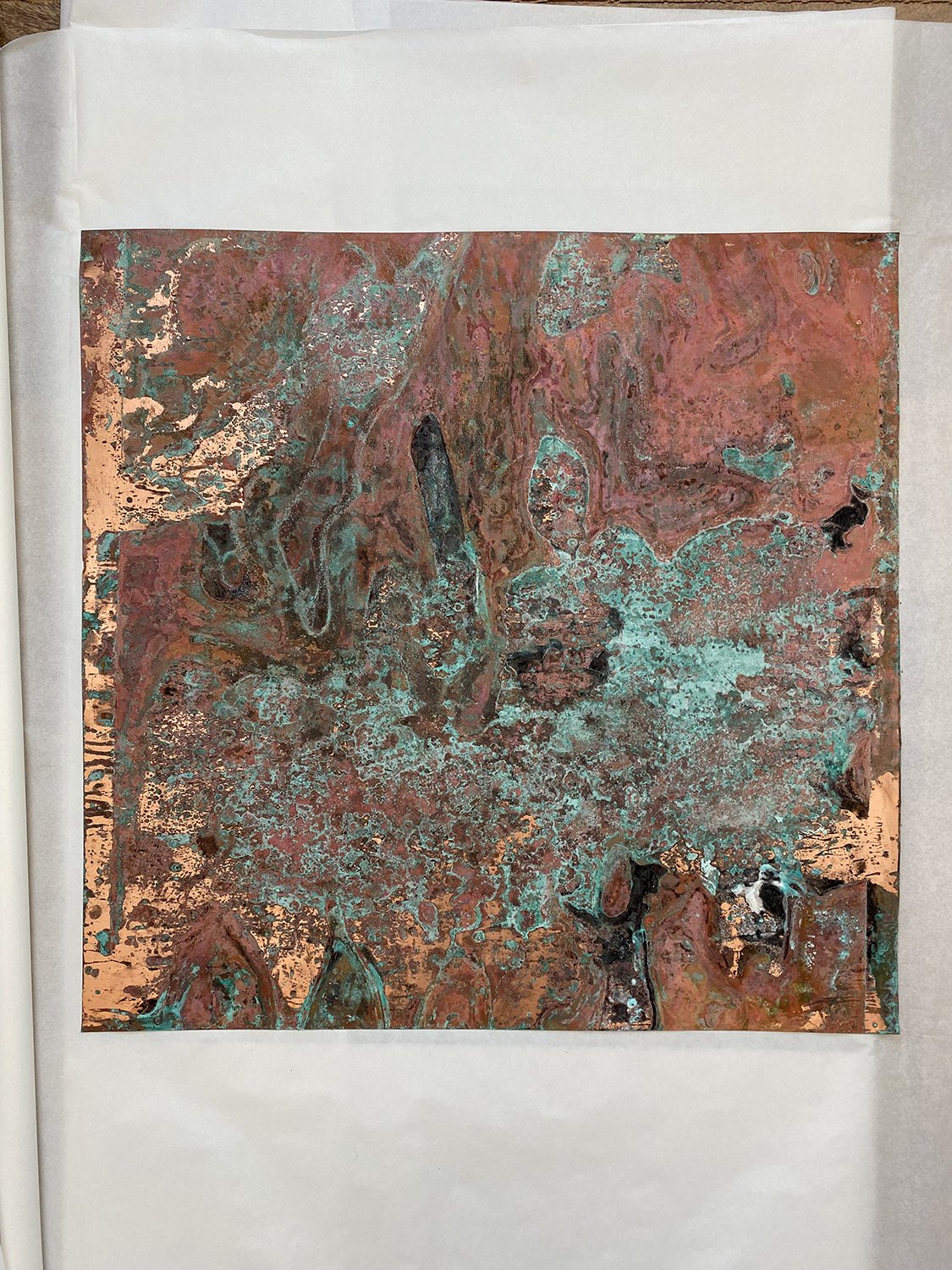

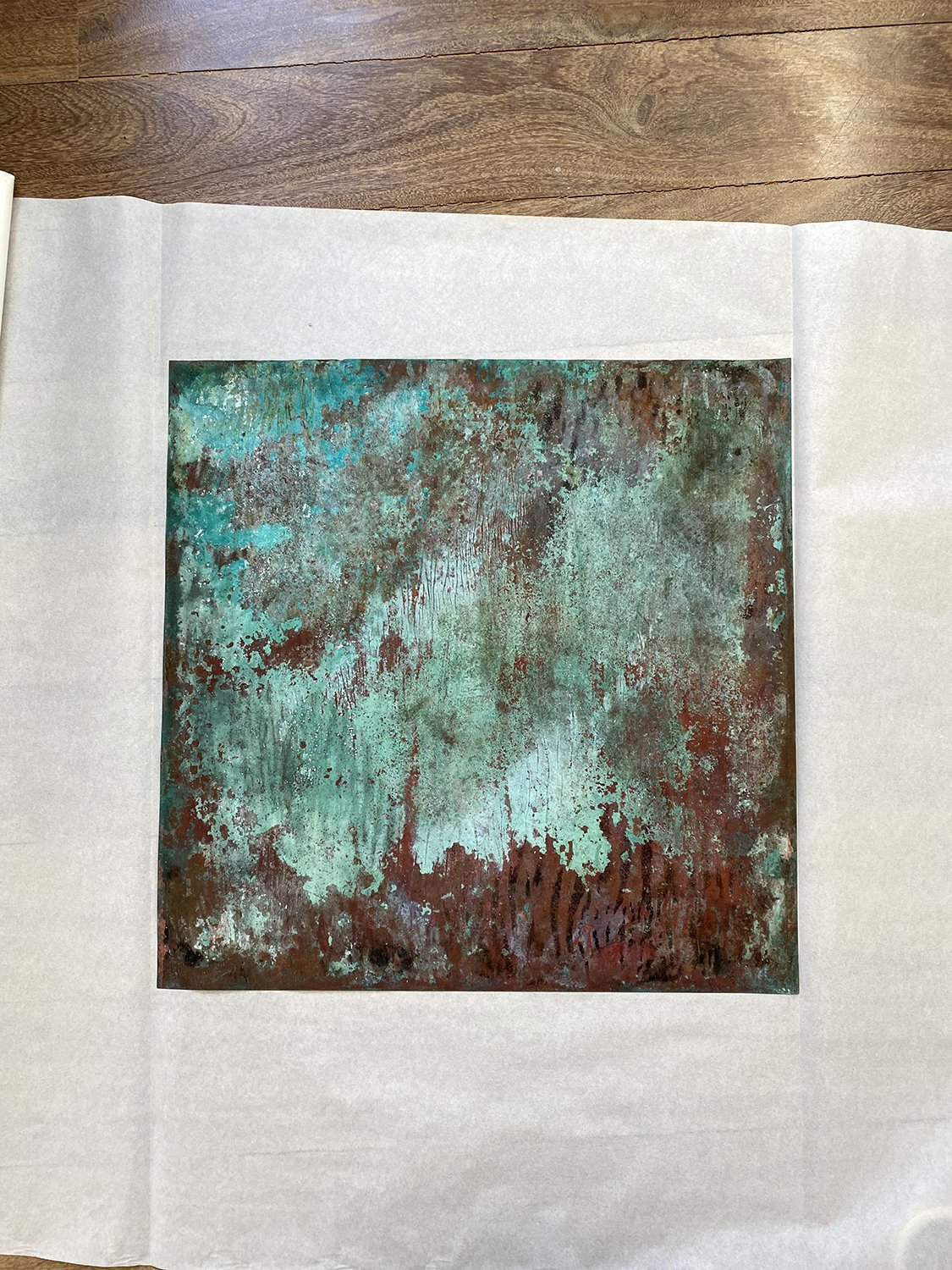
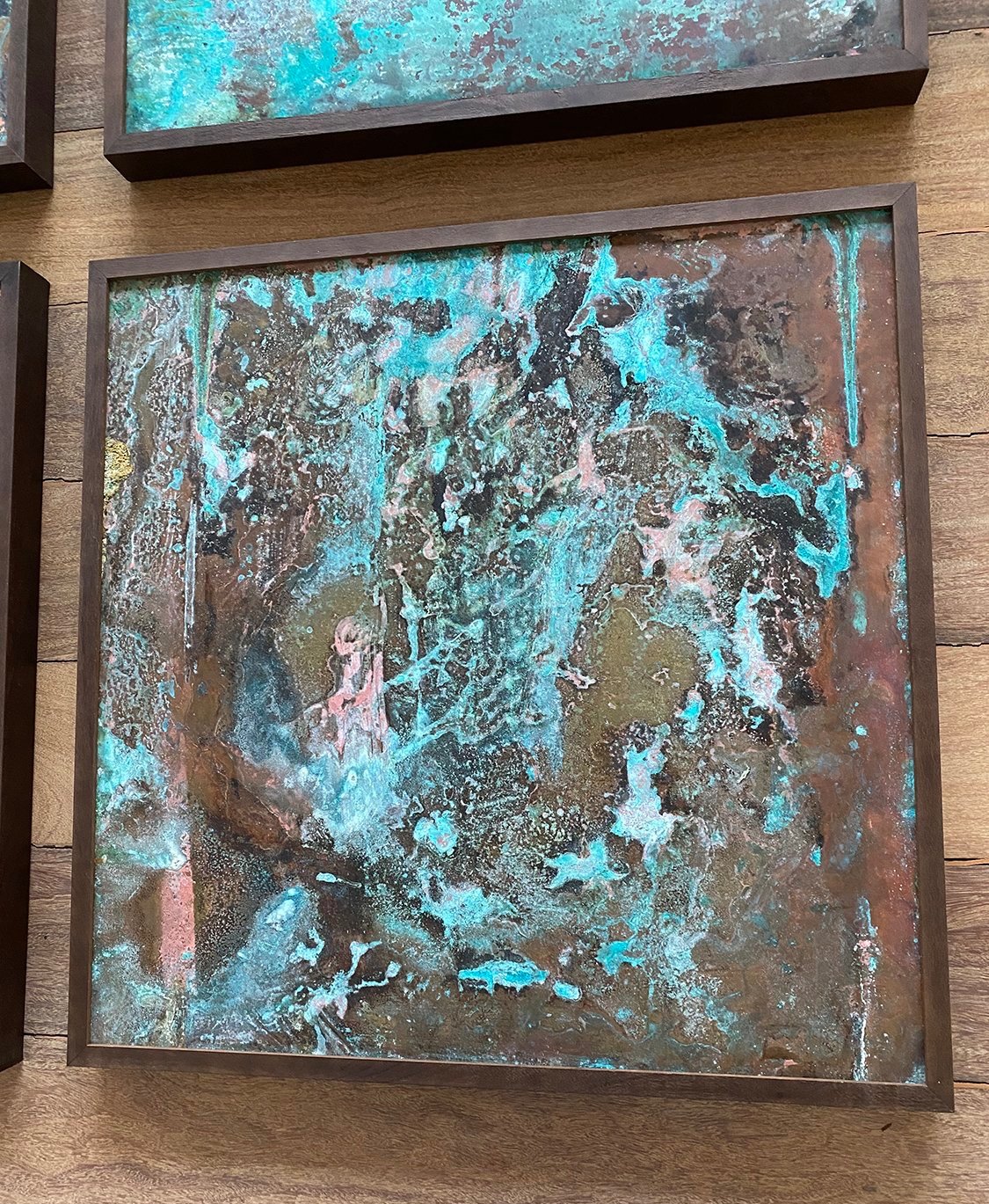

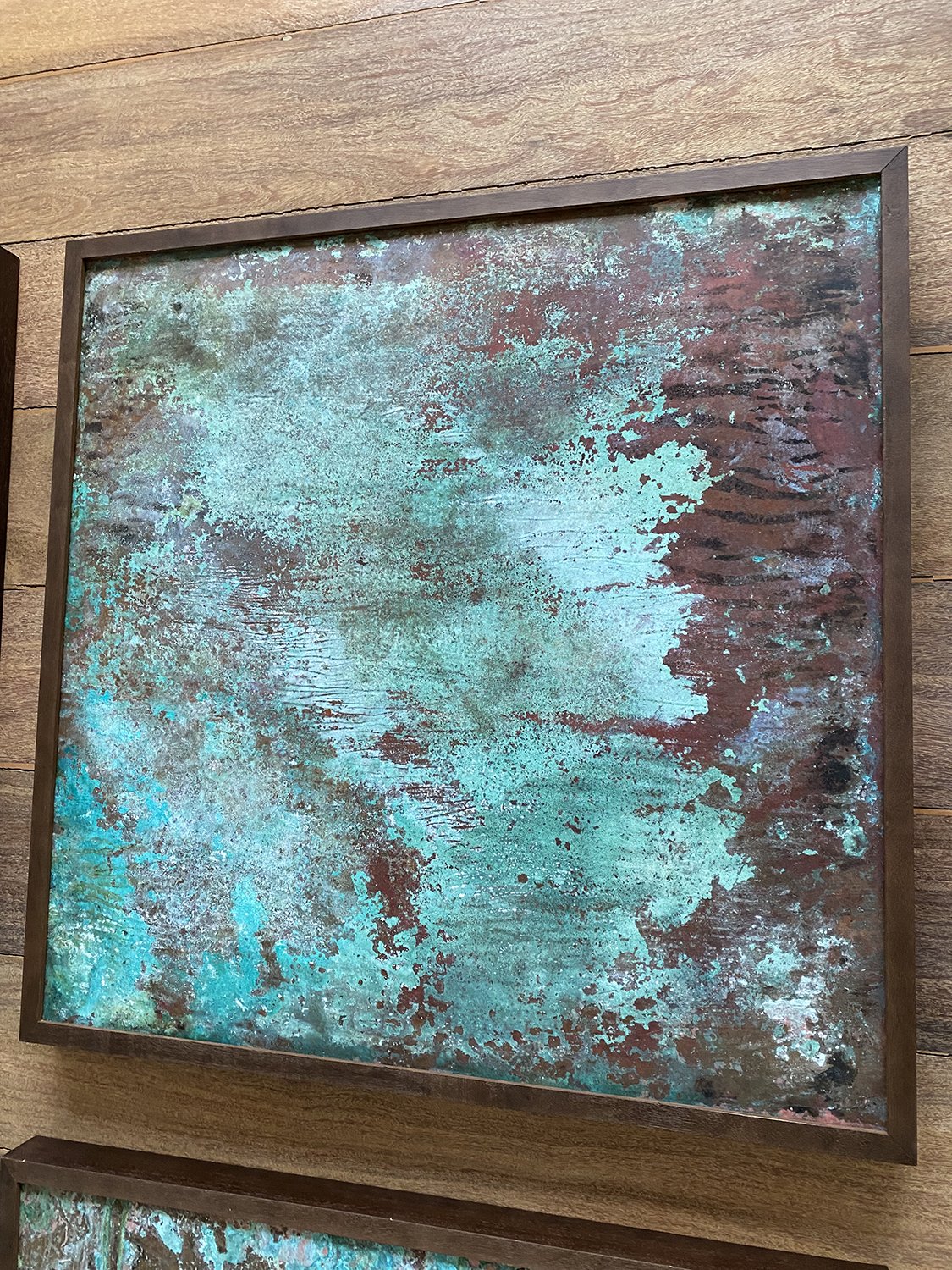
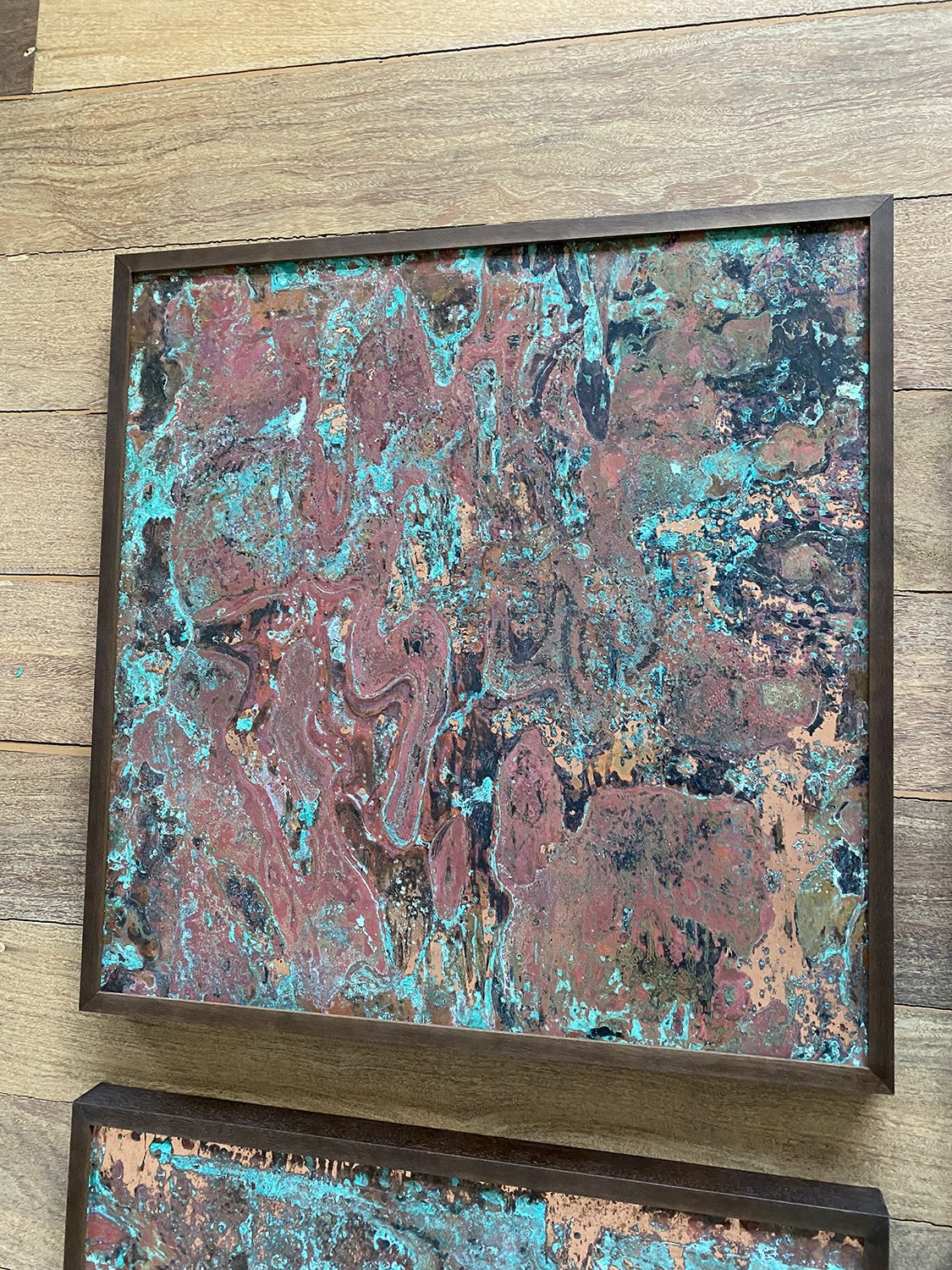
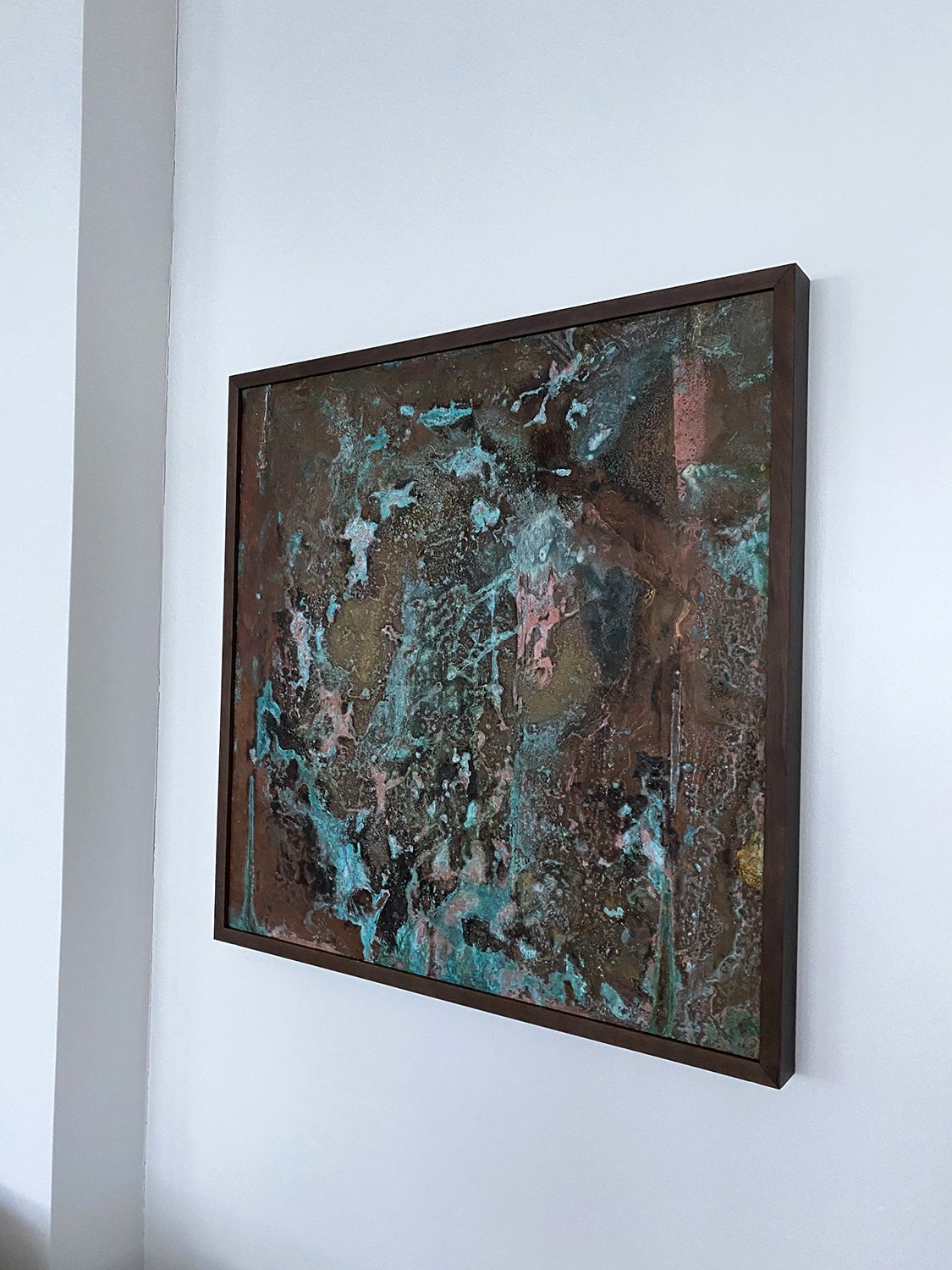
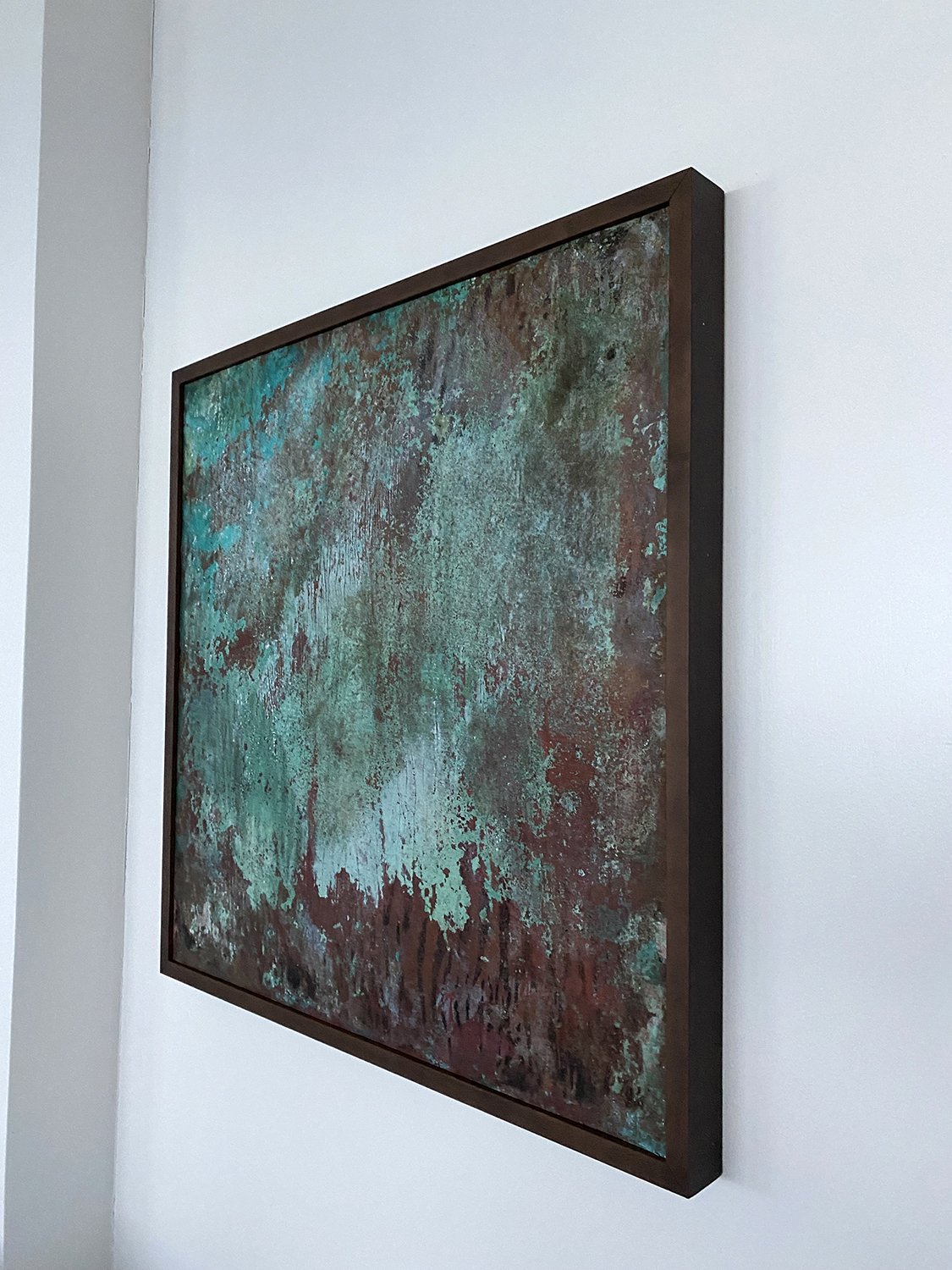
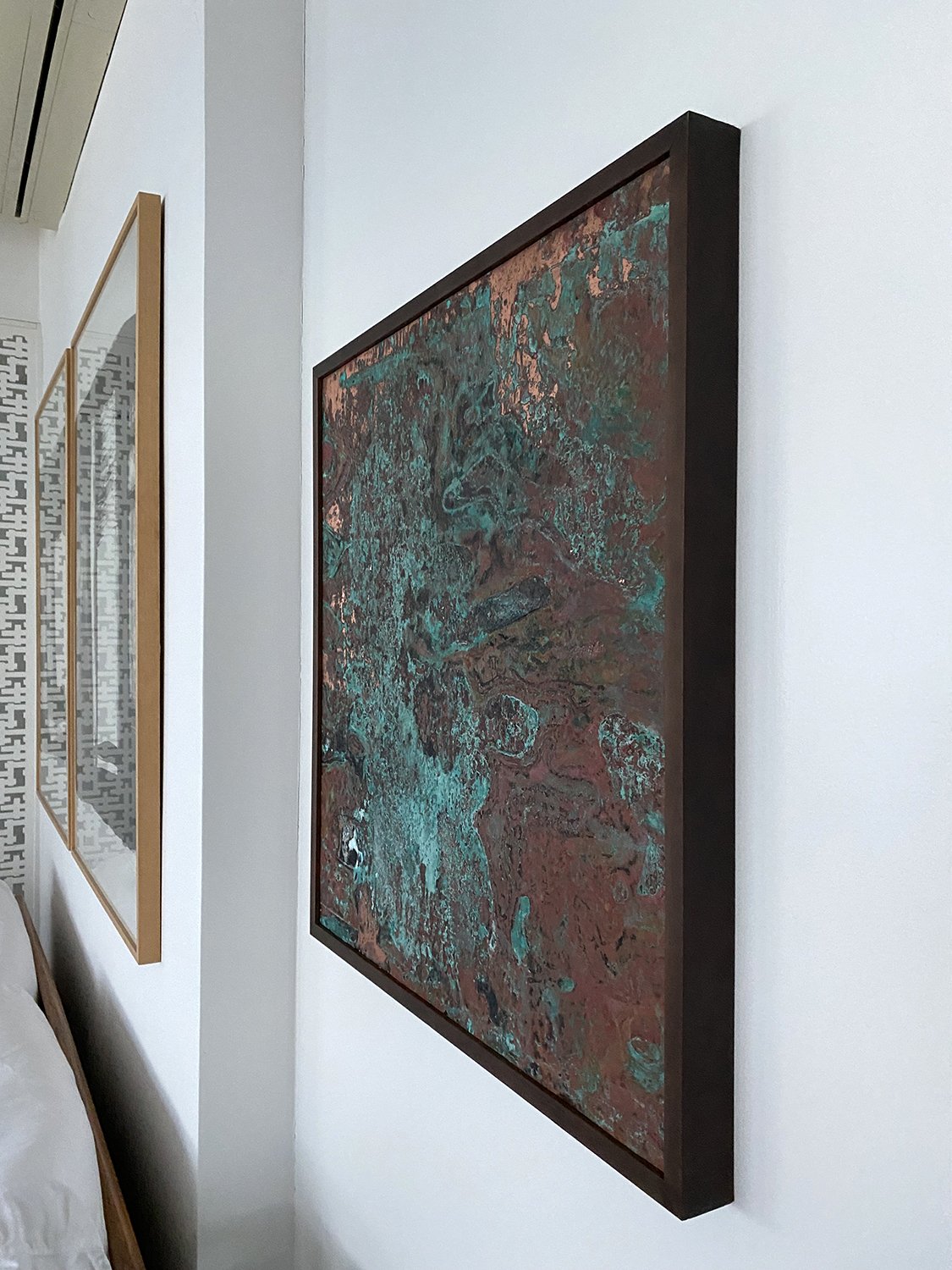
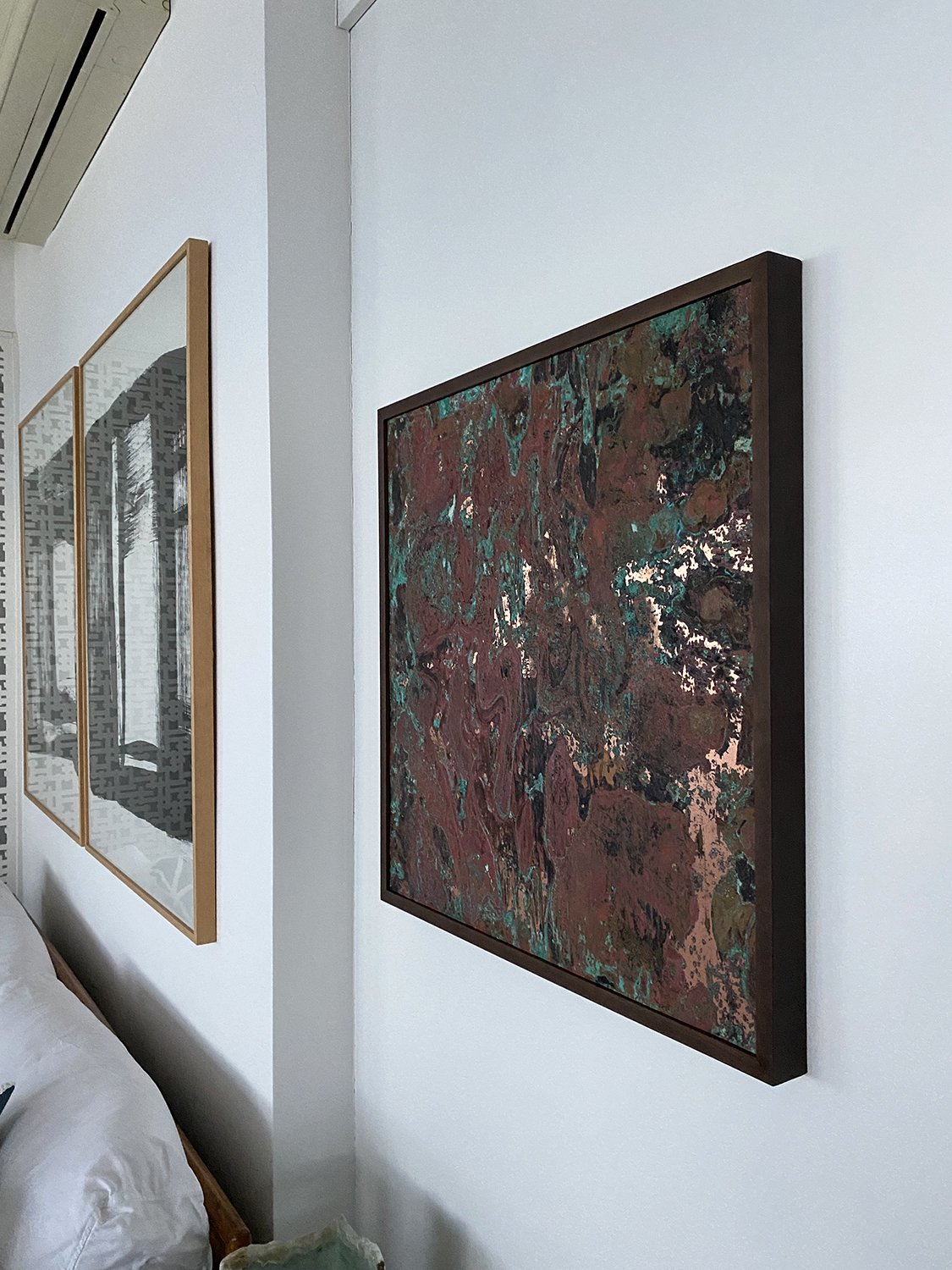
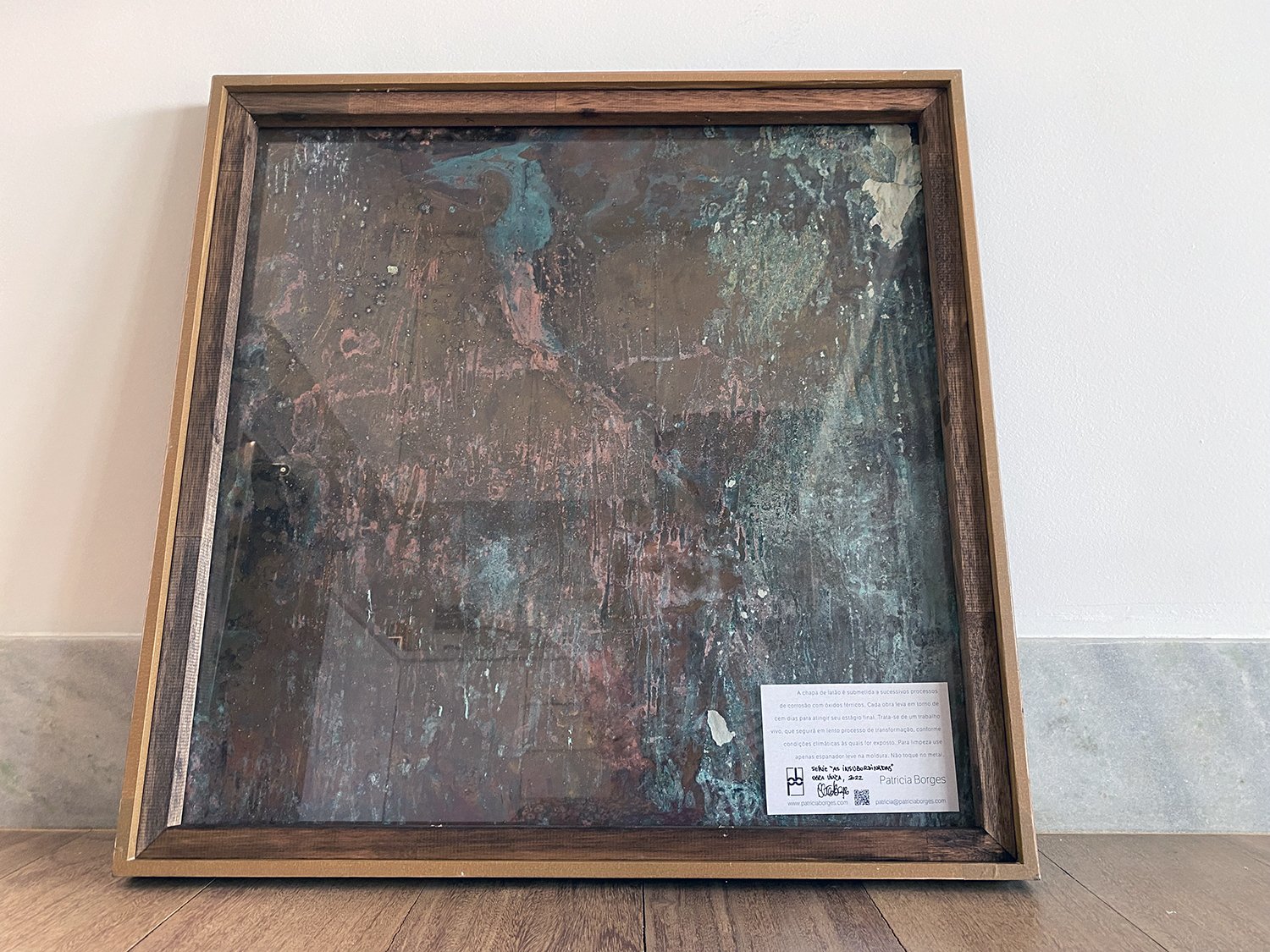
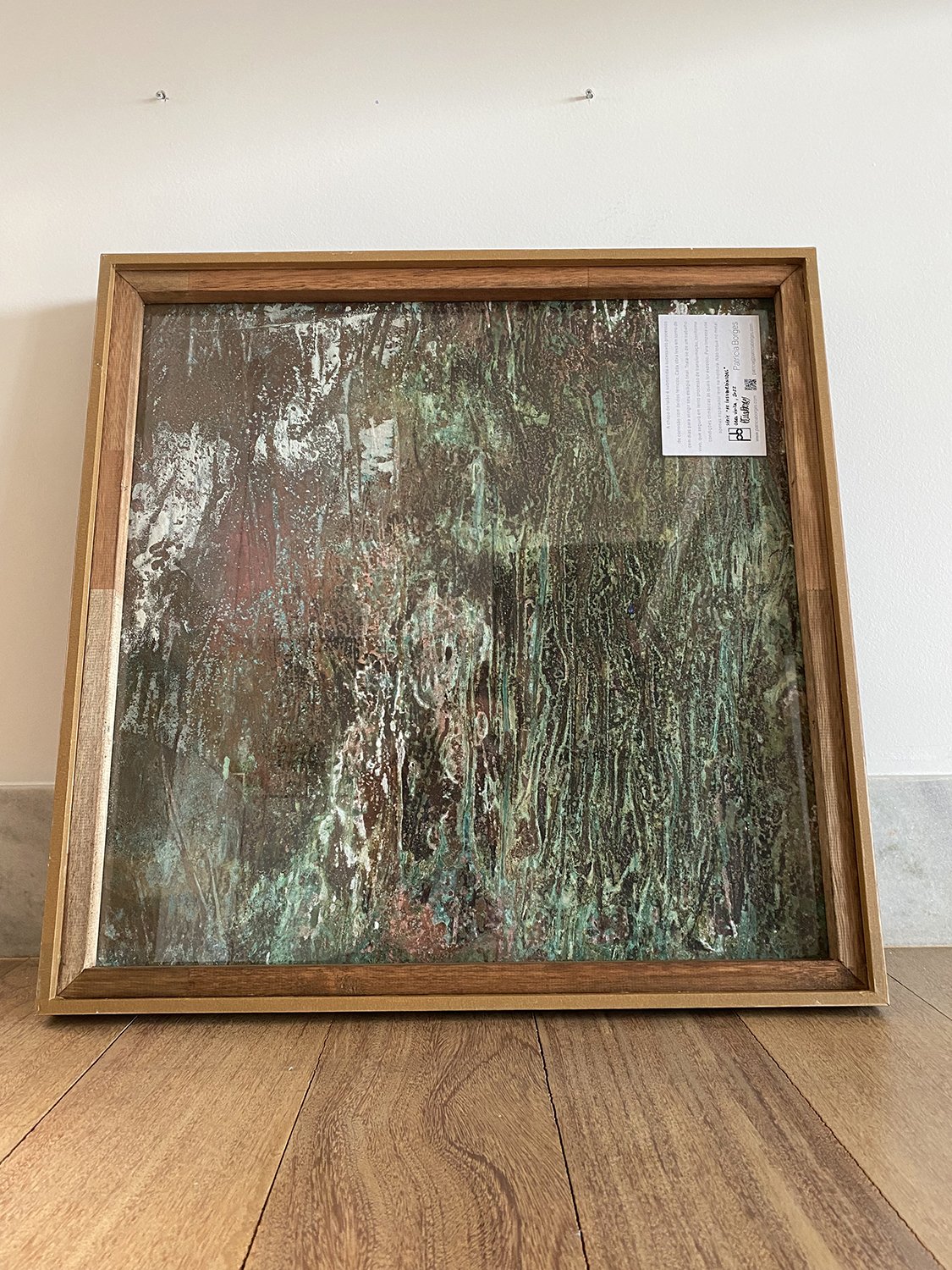
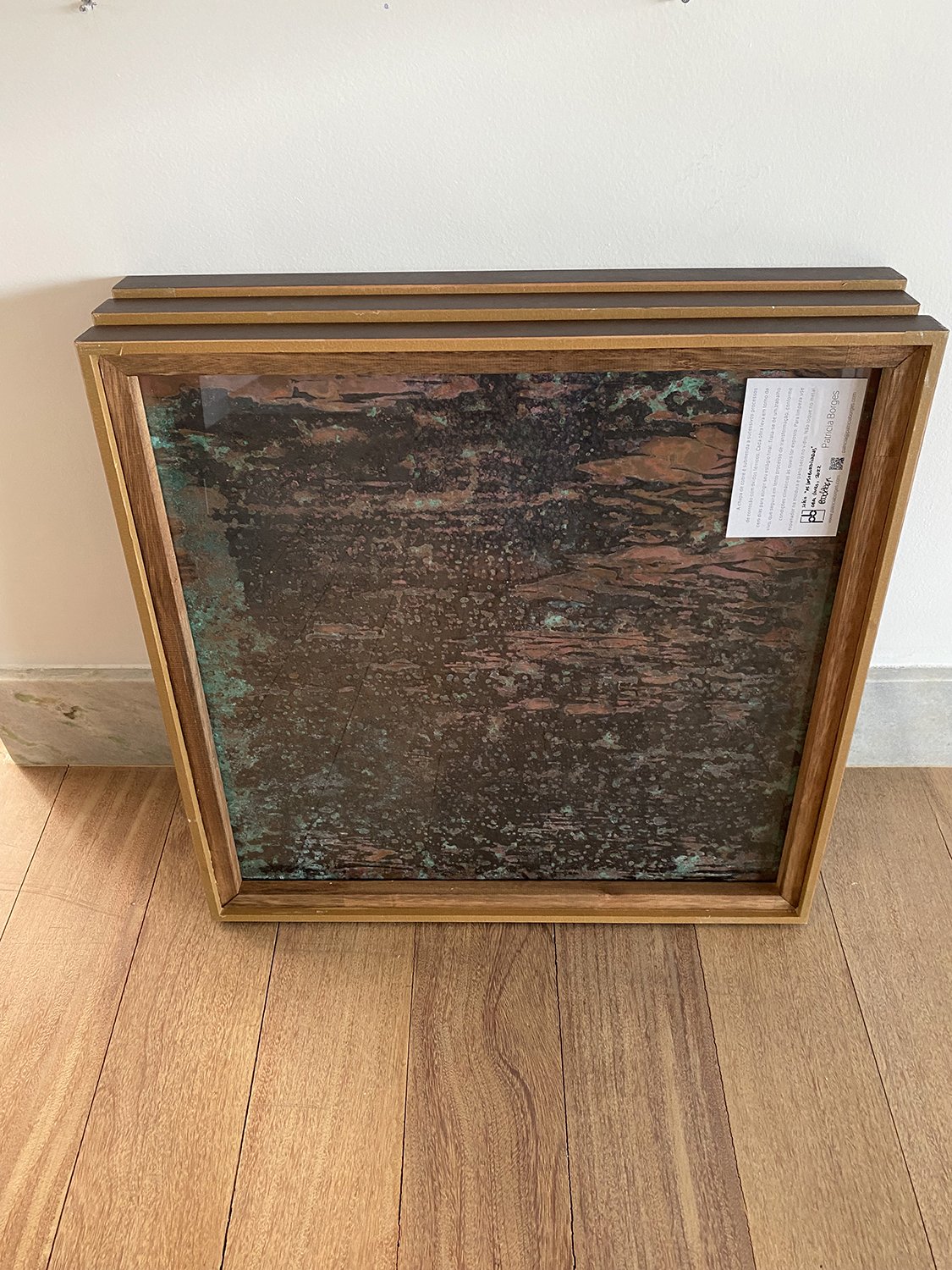


[[THE INSUBORDINATE - Oxidation on metal///AS INSUBORDINADAS - Oxidação em metal]] (2022)
Mixed media
[[Copper and tin foils on natural wood boxes, with glass on the back///Chapas de cobre ou latão em caixa de madeira natural com fundo em vidro]]
60 x 60 x 4 cm / 24 x 24 x 1,5 in
[[My growing interest in transitive states, in the passage between things and ambiguous processes of construction; led me to the oxidation of matter. THE INSUBORDINATE arise from the very vibration of the metal, the investigation is not part of a previously established formal program. It is about negotiating with time, with the air and humidity. It's resisting the frustration of ephemeral successes, the melancholy of seeing a color or texture disappear.
I am interested in the dilemmas about the irreversibility of time, the complexity of life. I try to explore the possibility of existing on the edge. Where, in a way, accumulation is also absence. The more the metal sheet oxidizes, the less it resists and the thicker it becomes. The gnawed result that the work has was achieved slowly, without haste. There is in the desperate fragility of the fragments that detach and fall from the metal, the certainty that we were wrong; that wholeness was only apparent. We have a nostalgia for lost continuity. There is something brutal, something painful about seeing the end. We hardly bear the perishable individuality that we are. And that dynamic can be applied to art. If there is no permanence associated with a given work, we continue to breathe life.
The metal sheet was subjected to successive corrosion processes with ferric oxides. Each work takes around 100 days to receive its wooden box and leave the studio. It is a living organism, which will continue to wear out slowly, depending on the climatic conditions to which it is exposed. To be aware of the passage of time is to watch the transformation of work into its “always disappearing” nature, to train the sight of waiting, without anticipation. To resist the curiosity of accelerating the natural oxidation of excess matter, shortening its existence and losing the alchemical beauty of the process.///Meu crescente interesse pelos estados transitivos, pela passagem entre as coisas e por processos ambíguos de construção, me conduziu à oxidação da matéria. AS INSUBORDINADAS surgem da própria vibração do metal, numa investigação que não parte de um programa formal previamente estabelecido. Trata-se da negociação com o tempo gerador, com o ar e a umidade presentes no ambiente. É sobre resistir à frustração de sucessos efêmeros, a melancolia de ver uma cor ou uma textura desaparecer.
Me interessam os dilemas sobre a irreversibilidade do tempo, a complexidade da vida. Tento explorar a possibilidade de existir no limite. Onde de certa forma, o acúmulo é também ausência. Quanto mais a chapa oxida, menos resiste e mais espessa torna-se. O resultado carcomido que o trabalho possui foi alcançado de forma lenta, sem pressa. Há na desesperada fragilidade dos fragmentos e pingos ácidos que descolam-se e caem do metal, a certeza de que estávamos enganados; que a inteireza era apenas aparente. Temos a nostalgia da continuidade perdida. Existe algo de brutal, algo de doloroso em avistar o fim. Suportamos mal a individualidade perecível que somos. E essa dinâmica é também aplicada à arte. Se não há uma permanência associada com a obra, continuamos soprando vida.
A chapa metálica foi submetida a sucessivos processos de corrosão com óxidos férricos. Cada obra leva em torno de cem dias para ganhar sua caixa de madeira e deixar o ateliê. Trata-se de um organismo vivo, que seguirá em lento desgaste, conforme as condições climáticas às quais for exposto. Estar atento à passagem do tempo, é assistir a transformação do trabalho em sua natureza “sempre desaparecendo”. É treinar o olhar de espera, sem antecipação. Resistir à curiosidade de acelerar a corrosão natural da matéria, abreviando sua existência e perdendo a beleza alquímica do processo.]]
(Patricia Borges)